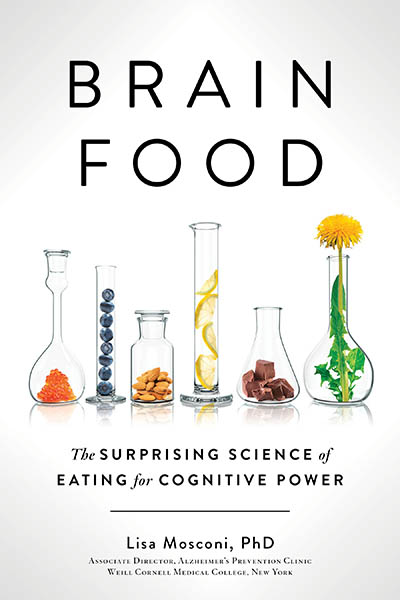 The second you can’t think of a word, do you say to yourself: Is that the start of dementia or Alzheimer’s? That’s a scary thought. Is there a way to prevent the way the brain seems to deteriorate in some areas? The answer is yes, according to Lisa Mosconi, PhD, author of the new book, Brain Food: The Surprising Science of Eating for Cognitive Power.
The second you can’t think of a word, do you say to yourself: Is that the start of dementia or Alzheimer’s? That’s a scary thought. Is there a way to prevent the way the brain seems to deteriorate in some areas? The answer is yes, according to Lisa Mosconi, PhD, author of the new book, Brain Food: The Surprising Science of Eating for Cognitive Power.
• ON-DEMAND: Listen to Faith’s conversation with Dr. Mosconi and support the Faith Middleton Food Schmooze® with your contribution to Connecticut Public Radio—and get this important book. •
Brain Food is a fascinating book by a neuroscientist who specializes in the brain and how it functions. We’re learning a lot about how the brain is changed by the food we eat. This has huge implications for people with brain issues, such as stroke, Alzheimer’s, concussion, and anyone who wants peak brain performance and clarity at important times, like test taking, athletic competition, public presentations, for competitive work environments and so on.
It turns out there is a growing body of evidence that the brain has its own appetite and requirements to perform well and heal. To our surprise, some of those needs, according to these rigorous studies and brain scans, show that the brain’s food and vitamins and minerals requirements can be different from what the body needs.
You can SPECIFICALLY target brain health and make a difference in how your brain performs and heals. The implications here cut a whole new pathway to improve health and human performance. Think about the many forms of dementia, Alzheimer’s, stroke prevention and treatment, and overall clarity we seek at any age.
I’ve spent two years recovering from a concussion when I was rear-ended by a driver on I-95. Believe me, I’ve read every word in this book, which we’ll make available to you as a thank you gift for supporting The Faith Middleton Food Schmooze® and all the programs you enjoy on Connecticut Public Radio.

